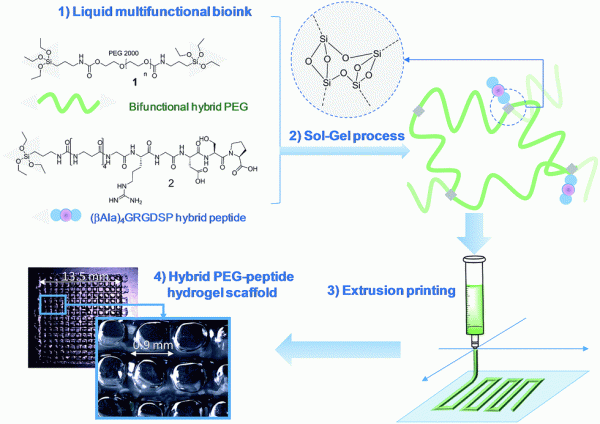RSC Advances, 2017, Volume: 7, Issue: 20, Pages: 12231-12235, DOI: 10.1039/C6RA28540F
C. Echalier, R. Levato, M. A. Mateos-Timoneda, O. Castano, S. Dejean, X. Garric, C. Pinese, D. Noel, E. Engel, J. Martinez, A. Mehdi, G.Subra

Abstract
An unprecedented generic system allowing the 3D printing of peptide-functionalized hydrogels by soft sol-gel inorg. polymn. is presented. Hybrid silylated inorg./bioorg. blocks are mixed in biol. buffer in an appropriate ratio, to yield a multicomponent bioink that can be printed as a hydrogel without using any photochem. or org. reagent. Hydrolysis and condensation of the silylated precursors occur during the printing process and result in a covalent network in which mols. are linked through siloxane bonds. The viscosity of the colloidal soln. used as bioink was monitored in order to set up the optimal conditions for extrusion printing. Grid-patterned hydrogel scaffolds contg. a hybrid integrin ligand were printed using a pressure-driven rapid prototyping machine. Finally, they were seeded with mesenchymal stem cells, demonstrating their suitability for cell culture. The versatility of the sol-gel process and its biocompatibility makes this approach highly promising for the prepn. of tailor-made cell-laden scaffolds.

